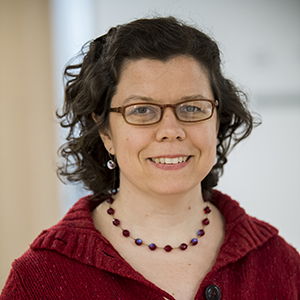About the Authors
 Lesley Koplow, MS, LCSW, is the Director of the Center for Emotionally Responsive Practice at Bank Street College. The Center collaborates with early childhood programs and elementary schools to support the social and emotional well being of children, parents, and teachers in the school setting. Ms. Koplow is the author of several books on child mental health in schools, including; Unsmiling Faces: How Preschool can Heal, Creating Schools That Heal: Real Life Solutions, Bears, Bear Everywhere: Supporting Children’s Emotional Health in the Classroom and Politics Aside: Our Children and Their Teachers in Score-Driven Times. She was the winner of the 2013 New York Zero-To-Three Emily Fenichel Award for EducationalLeadership and the 2018 Bank Street College Thomases Award for Leadership.
Lesley Koplow, MS, LCSW, is the Director of the Center for Emotionally Responsive Practice at Bank Street College. The Center collaborates with early childhood programs and elementary schools to support the social and emotional well being of children, parents, and teachers in the school setting. Ms. Koplow is the author of several books on child mental health in schools, including; Unsmiling Faces: How Preschool can Heal, Creating Schools That Heal: Real Life Solutions, Bears, Bear Everywhere: Supporting Children’s Emotional Health in the Classroom and Politics Aside: Our Children and Their Teachers in Score-Driven Times. She was the winner of the 2013 New York Zero-To-Three Emily Fenichel Award for EducationalLeadership and the 2018 Bank Street College Thomases Award for Leadership.
 Noelle Dean, LMSW, has been a social worker in New York City for over 20 years with more than half of those years working at Bank Street College. At Bank Street, she is a mental health consultant in the Center for Emotionally Responsive Practice and is the “feelings teacher” in the School for Children’s Lower School. In past years, she has taught as an adjunct in the Graduate School as well. She has experience as a community organizer as well as using dance as a form of expressive arts therapy. She is passionate about social justice issues and believes that emotional wellbeing is a human right.
Noelle Dean, LMSW, has been a social worker in New York City for over 20 years with more than half of those years working at Bank Street College. At Bank Street, she is a mental health consultant in the Center for Emotionally Responsive Practice and is the “feelings teacher” in the School for Children’s Lower School. In past years, she has taught as an adjunct in the Graduate School as well. She has experience as a community organizer as well as using dance as a form of expressive arts therapy. She is passionate about social justice issues and believes that emotional wellbeing is a human right.